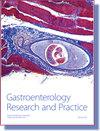Effect of the Type of Intraoperative Restrictive Fluid Management on the Outcome of Pancreaticoduodenectomy: A Systematic Review and Meta-Analysis
IF 2
4区 医学
Q3 GASTROENTEROLOGY & HEPATOLOGY
引用次数: 0
Abstract
Background. The perioperative management of pancreaticoduodenectomy is complicated, and the significant morbidity and mortality may be influenced by the method of intraoperative fluid management. Whether intraoperative restrictive fluid therapy can affect the outcomes of pancreaticoduodenectomy or not is controversial. Methods. PubMed, EMBASE, Cochrane Library, and clinicaltrials.gov were searched for prospective and retrospective studies comparing restrictive and liberal intraoperative fluids in patients undergoing pancreaticoduodenectomy. Following study identification, a systematic review and meta-analysis were performed. Results. Fourteen studies, including six prospective trials and eight retrospective studies, involving 2,596 patients, were included. Intraoperative restrictive fluid regimens had no effect on the mortality compared to liberal fluid regimens in the overall cohort (odds ratio [OR]: 1.39; 95% confidence interval [CI]: 0.82–2.35, p = 0.773 ). Liberal fluid regimens could increase the risk of pulmonary adverse events (OR: 1.66; 95% CI: 1.10–2.50, p = 0.131 ) and prolong the length of hospital stay (SMD -0.10; 95% CI -0.19– -0.01, p = 0.375 ). There were no significant differences in the incidence of pancreatic fistulas. Conclusions. Restrictive fluid regimens have a slight effect on the outcomes of pancreaticoduodenectomy. The clinical relevance of this finding needs to be interpreted. The existing evidence may not be adequate; therefore, further studies are warranted.术中限制性液体处理类型对胰十二指肠切除术结局的影响:系统回顾和荟萃分析
背景。胰十二指肠切除术的围手术期处理较为复杂,术中液体处理方法可能会影响其显著的发病率和死亡率。术中限制性液体治疗是否会影响胰十二指肠切除术的预后是有争议的。方法。检索PubMed、EMBASE、Cochrane图书馆和clinicaltrials.gov,以比较胰十二指肠切除术患者术中限制性和自由液体的前瞻性和回顾性研究。在研究确定后,进行了系统回顾和荟萃分析。结果。纳入了14项研究,包括6项前瞻性试验和8项回顾性研究,涉及2596名患者。在整个队列中,术中限制性液体方案与自由液体方案相比对死亡率没有影响(优势比[OR]: 1.39;95%可信区间[CI]: 0.82-2.35, p = 0.773)。自由液体方案可增加肺部不良事件的风险(OR: 1.66;95% CI: 1.10-2.50, p = 0.131)和延长住院时间(SMD -0.10;95% CI -0.19 - -0.01, p = 0.375)。两组在胰瘘发生率上无显著差异。结论。限制性液体方案对胰十二指肠切除术的结果有轻微影响。这一发现的临床意义有待进一步解释。现有证据可能不充分;因此,有必要进行进一步的研究。
本文章由计算机程序翻译,如有差异,请以英文原文为准。
求助全文
约1分钟内获得全文
求助全文
来源期刊

Gastroenterology Research and Practice
GASTROENTEROLOGY & HEPATOLOGY-
CiteScore
4.40
自引率
0.00%
发文量
91
审稿时长
1 months
期刊介绍:
Gastroenterology Research and Practice is a peer-reviewed, Open Access journal which publishes original research articles, review articles and clinical studies based on all areas of gastroenterology, hepatology, pancreas and biliary, and related cancers. The journal welcomes submissions on the physiology, pathophysiology, etiology, diagnosis and therapy of gastrointestinal diseases. The aim of the journal is to provide cutting edge research related to the field of gastroenterology, as well as digestive diseases and disorders.
Topics of interest include:
Management of pancreatic diseases
Third space endoscopy
Endoscopic resection
Therapeutic endoscopy
Therapeutic endosonography.
 求助内容:
求助内容: 应助结果提醒方式:
应助结果提醒方式:


